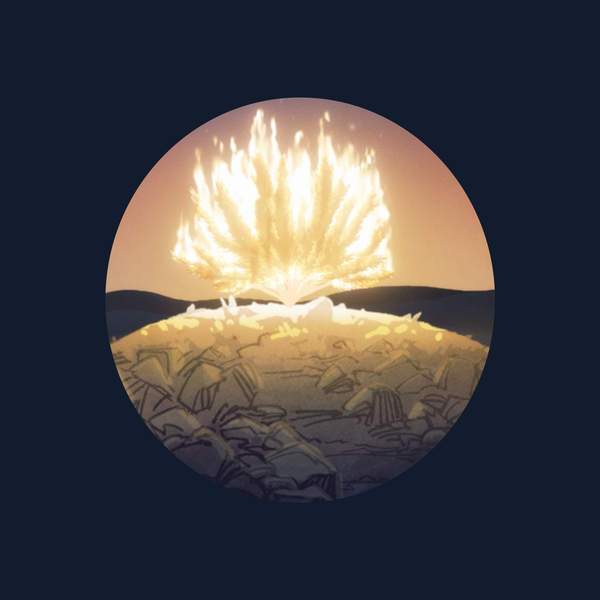
Is the Tree of Life Practical?
We are concluding our Tree of Life series with a question and response episode. In this episode, Tim and Jon respond to audience questions on the theme of the Tree of Life in the Bible. Thank you to everyone that submitted questions!
Episode Chapters
Show Notes
Questions About The Tree Of Life Podcast Series
Luke From Houston - (1:56)
If the tree of the knowledge of good and evil places the option before humans of either receiving wisdom from God––on his terms in his way––or reinventing good and evil for themselves in a way that may be beneficial for them but dangerous for others, what does it mean practically to make that decision for yourself? How do biblical characters navigate the question, and how can we do that today?
Mitchell From Kansas - (10:55)
I had a question regarding Genesis 3. After Adam and Eve take of the tree of the knowledge of good and evil, and they realize that they're naked, and they feel shame they cover themselves with leaves. And I might be grasping at straws, but what would it mean in the concept of trees for them to be covering themselves with things of trees, covering their shame with that?
Shannon From Toronto - (17:38)
I have a question in regards to trees, specifically the fruit of the vine. I've noticed that there are a few mentions of the fruit of the vine, one with Noah being a husband and he drank the fruit of the vine. The Nazarene vow as well that says you're not supposed to eat anything off the vine. Also there was quite a bit of mention about the fruit of the vine as it also pertains to the blood of the grapes and how it also plays into the New Testament with the Lord's supper. I just wanted to get your take on that as it pertains to this topic of trees and the fruit with the tree.
Merryl From Maryland - (30:36)
God created the earth and the dome over, and the earth separated everything and created order from chaos. Does that mean his original creation was chaos and that outside the garden was chaos and inside was order? Or does that mean that the whole place was ordered and when the first humans got exiled and brought the curse out into creation that they changed the order back into chaos? I'm trying to figure out if it was chaotic when they got there or if they brought chaos with them?
Elena From Bulgaria - (43:48)
In Genesis 21:33 after resolving an issue about a well with Abimelec, Abraham plants a tamarisk tree in Bethsheba, supposedly by the well. Is there any significance to the fact that he doesn't build an altar or a biller but plants a tree and specifically this type of tree, a tamarisk tree?
Darran From Washington - (46:55)
My question has to do with the "humans are trees" idea. Ever since watching Tim's Year of Torah videos, Deuteronomy 20:19 has really intrigued me. Do you think the biblical authors are making a pun that is riffing off of the humans are trees theme from Genesis 1?
Peter From The Netherlands - (50:55)
I was wondering if there's a connection between trees and high places and highly placed people. Because in the examples that you gave about people being like trees, it seems that there are always highly placed people involved. And also when someone is making a decision at the high place at the tree at the high place, it seems that these decisions do not just affect their own lives, but also the lives of many others.
Garrett From Tennessee - (53:09)
My question is from the book of Esther. In the book of Esther there are gallows set up for Mordecai by this evil character Haman, and that word gallows is, from what I can tell, the only place translated "gallows." But I think it's interesting that this evil character thinks that he's going to do away with this righteous person and instead meets his death on this tree that is translated instead to gallows. So just want to get your thoughts on that.
Lauren From Dallas - (56:19)
One tree that pops up in John 1:48 is when Jesus sees Nathanael under the fig tree. That has always perplexed me, and I have been wondering if there is significance there and if you could elaborate on that?
Resources: Jewish Apocalyptic and Apocalypticism by Dr. Crispin Fletcher-Louis
Scripture References
Referenced Resources
Interested in learning more? Check out Tim's extensive collection of recommended books here.
Get the BibleProject app for access to our entire library of resources in one place.
Show Credits
Defender Instrumental: Tents
